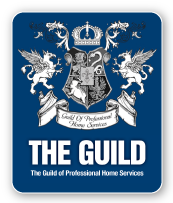

Century 21 Ailor Associates, LLC

How to Shop for Your First Home
The need for more space was what got Kim and Jason Fitzsimmons thinking about buying their first home. They'd been married for a year and realized that a small apartment, even with two bedrooms, wasn't big enough for all they'd accumulated.
But it wasn't until they had their income taxes done that they learned from a tax preparer about the deductions they could get from owning a home. The Fitzsimmonses then got serious about buying their first home, and about doing it before the end of the year. Deducting the mortgage interest from their income taxes would make buying a home less expensive than renting. While that isn't true for everyone (check with your tax preparer first on home deductions), the couple started doing their homework and soon were out looking for their first home.
It's tempting to just go out and start shopping for your first home. After all, that's the ultimate goal and the most fun part. But doing your homework first will pay off in less stress and more savings. If you're a first-time home buyer, whether for tax reasons, the desire for more space or just for the chance to have your own washer and dryer, here are tips to get you started.
1. Know how much you can afford
This should be the first step in buying your first home so you don't waste your time, or a real estate agent's, by looking at houses that you can't afford a mortgage on. The Fitzsimmonses visited a real estate broker who helped them determine how much of a loan they would qualify for, based on their income and credit. They also factored in property taxes, maintenance, utilities, insurance and possible homeowner-association dues. They totaled those expected costs and set up an experiment: After paying the rent on their apartment, they set aside money equaling the difference between their rent and the projected cost of homeownership. They did this for a few months so they could get used to making the payments. A loan calculator will help figure out how much a home loan will be.
2. How long will you stay in your first home?
The longer you live in your first home, the better the savings because you're spreading out the upfront costs of buying a house. Those costs include a real estate agent's fee, closing costs, inspection fees and loan fees -- which can add up to 10 percent of the sale price, or approximately 18 months of rent.
3. Get a loan
Getting preapproved for a home loan helps make buying a first home faster and easier, especially if there are multiple offers on the home. Your mortgage lender or broker should be able to give you an estimate, down to the penny, of how much money you'll need in closing costs. Then you'll know how much of your savings to set aside for a down payment, which will help determine how much your loan -- and the monthly mortgage -- will be. Putting down 20 percent will eliminate the need for mortgage insurance, although your lender or broker might be able to find loans at good rates that don't require 20 percent down. This is where it really pays to shop around for the best loan rate and terms.
4. Know the market
After determining where your finances stand, the fun part begins in finding out what you can afford and where you want to buy your first home. Research neighborhoods that interest you and find out the median price of homes there. You can research homes on websites such as AOL Real Estate, Zillow, Realtor.com, Trulia.com or others you trust. Finding homes similar to the kind you want, and in the same neighborhood, will give you an idea of how fair the price is when you are ready to buy.
5. Shop around
Every house buy requires sacrifices, and you won't get everything you want. There are many factors to consider, such as how much room you need. Does your first home have to be a single-family home or will a condo work? Is it near transportation, good schools, parks, shopping and your other essentials? Does the home have the amenities you want, such as a fireplace, dining room, backyard, pool or deck?
Find a real estate agent to represent you, or if you're brave and want to do it on your own, go out and shop on your own. Either way, stick to these five steps and you should be fine.
Buying a house, whether your first home or several down the line, is one of the most stressful and expensive transactions you'll ever undertake. But if you do your homework and prepare for it with the above steps -- figuring out how much you can afford, how long you'll stay, getting a loan, studying the local market, and shopping for a house -- it should be a lot easier.
 home
home
 contact
contact
 monmouthcounty Homemove
monmouthcounty Homemove


